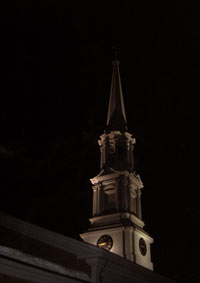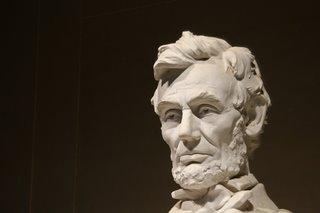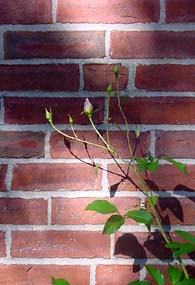"The Taste of Christmas" by Rev. Tom Schade

There is nothing sweeter, more heart - warming, more spiritually delicious than the traditions of my family and my tribe as we celebrate Christmas.
On the other hand, there is nothing gaudier, more tawdry and more soul-deadening than the ways that some other people celebrate the holidays.
The Christmas and Hanukkah seasons, having been now combined into one commercialized “Holiday” celebration of good-natured greed and gluttony, give us a chance to compare tastes on a level-playing field. And by tastes, I don’t mean comparing German Stollen vs Slovenian Potica vs those Swedish anise flavored cookies and all the other varieties of Christmas cookies. I mean tastes, like in good taste and bad taste, as in trees, lights, decorations and gift-giving styles.
Back in the early 60’s my mother caught sight of a neighbor’s Christmas Tree, and since then, I have known that Christmas is a test of one’s good taste. Our neighbor had put up an aluminum tree, with identical blue balls. And was lit by a color-wheel, so that the whole thing turned green, red and gold in ever-repeating order. I thought it kind of cool, in a space age, Jetsons sort of way, but my mother was appalled. It was the talk of the neighborhood, but what was said was not always kind. Around our dinner table, it was proclaimed to be the end of civilization as we know it, and a sign of the impending Apocalypse.
We were of another tribe, the ones that celebrated with fresh cut trees, decorated with the larger multi-colored bulbs and an eclectic collection of pricier ornaments, bought a few at a time each year.
It wasn’t until later that I learned that our Christmas tree décor is considered tacky by the tribe that favored smaller lights that were only white and themed ornaments.
Just so you know, as adults we favor the blinking small multi-colored lights with a collection of ornaments either made or chosen by the children when younger. Our ornament collection includes a lime-green knitted Christmas Octopus, whose exact role in the Nativity story is unclear.
There is the tribe that favors the single candle in each of the windows of the house, and the tribe that favors a Nativity scene in front yard, and the tribe that favors Santas climbing into the chimney. Tribes mix and combine; you can now buy statues of kneeling Santas to place by the manger in your front yard crèche. (Gosh, what’s next? Easter cards showing the Easter Bunny on the cross?) There is even the tribe that favors any sort of cartoon character as a yard decoration at Christmas. Why should Sylvester the Cat and Tweety be left out?
The Boston Globe has been publishing a hot and heavy debate about a family that has decorated their house with so many lights that their electric bill runs $1100 a month during the holidays. Naturally there are many letters to the editor suggesting better uses for that money. But there are also letters from people who are delighted by the display and one letter from a nurse who describes how she looks forward to seeing it on the way home after a long and difficult shift in the hospital.
Some people get up at 5 a.m. to hit the stores on the Friday after Thanksgiving. Others derive just as much pleasure being appalled at such behavior when reported on the evening news. “Would you ever?” They ask.
Even in our most joyous and happiest time of the year, we find ourselves comparing, judging, competing and playing games of moral one-upmanship. We like to leap from differences in taste to making conclusions about morals and values. I suggest that how we decorate our homes for Christmas is not a real measure of whether we have grasped the true meaning of the holiday.
I urge you to do the following this year: Make something beautiful for the holidays with your own hands. You probably already do, but even so, put an extra effort in this year. Be mindful of your effort, your creative process, and your satisfaction and pride at the results. Live for a moment in yourself as an artist, a holiday artist or a holiday crafter, and hold onto that feeling.
When you go out into the world, watch and observe. Everywhere you go, you will the see the results of so many other people’s moments of creativity. The holidays are a huge popular arts and crafts exhibit, the time of the year when more people turn away from their workaday world to create something lovely, witty, beautiful and charming. The more deeply that you can feel yourself as another holiday artisan, the more you could see the same being expressed by others. May you be filled with a spirit of compassion as a result.







